
You hear that all the time with pets. Not all pets, but most.
The idea is that most pets are social, just like us humans.
They feel much happier if they have a friend to spend time with.
Sure, we can be that friend, but a same-species friend is obviously much better.
Are chinchillas one of those social pets?
Can a chinchilla be alone at all, or will it get lonely and suffer?
Keep reading to learn everything you need to know about a chinchilla’s need for companionship.
Contents
Can A Chinchilla Be Alone?
Yes, chinchillas can be alone and do not need a second chinchilla to live with.
If a chinchilla lives alone, you need to ensure you are providing it with some form of social interaction daily, to ensure it remains happy and healthy.
I realize this may stress you out a bit, if you are considering adopting a single chinchilla and having it be alone.
You may be wondering how you will always be able to make time for your chinchilla for social interaction, if you do decide to keep it alone.
I get it and will give you plenty of recommendations below on how best to have your chinchilla live alone below.
Chinchillas Living Alone
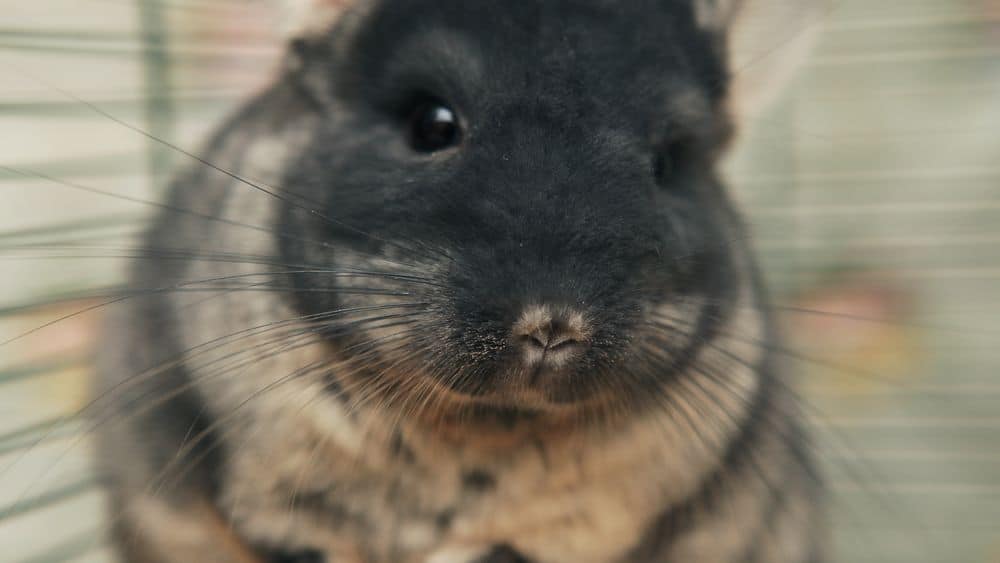
I want to reiterate that a chinchilla can can certainly be alone. A second chinchilla is not necessary. I know this from personal experience. I have been raising a single chinchilla for the past 5 years.
That said, chinchillas are extremely social animals. Although they can be alone, this doesn’t mean they can be ignored.
Furthermore, a lot of people feel that you need a second chinchilla, in order to ethically provide the best care. But this just isn’t true. A second chinchilla is great, but not necessary.
In fact, I have an entire blog post dedicated to this topic.
While chinchillas are extremely social creatures and loving pets, they don’t necessarily need to be partnered with another chinchilla.
Additionally, a chinchilla can even be left home alone for small amounts of time if necessary.
An important must-read blog post I have discusses in-depth how long you can leave your chinchilla home alone. You can find it here.
Now that we know a chinchilla can be left alone, let’s look at play time. Because many owners make the mistake of leaving their chins alone too much, i.e. no play time.
Always Have Play Time With Your Chinchilla
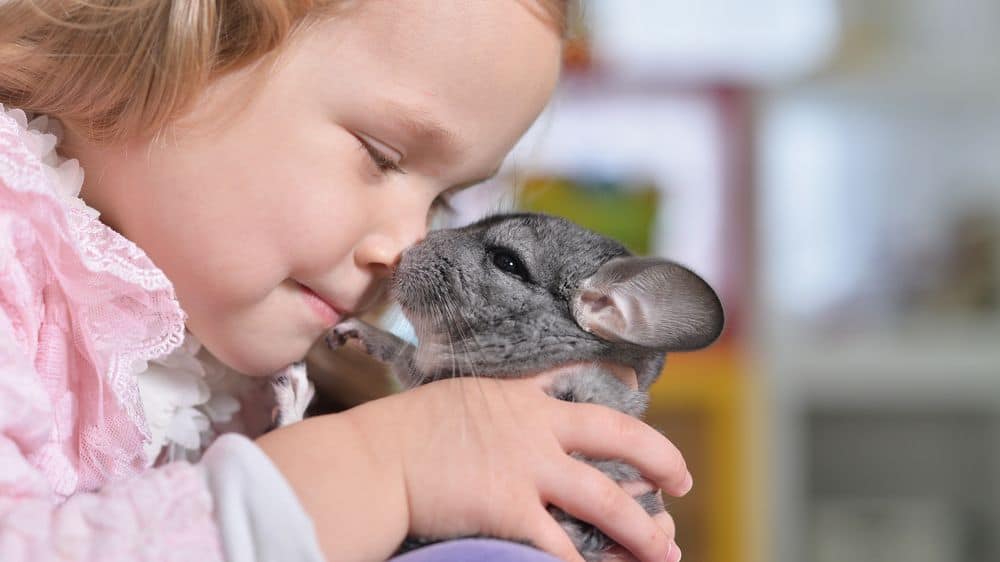
If you intend on having your chinchilla live alone, there are a few things you need to keep in mind. First and foremost, you need to provide play time.
Playtime is bonding time with your chinchilla. It is how a chinchilla can thrive and remain happy and healthy without a chin friend.
Even if your schedule is somewhat demanding, you have to make time for this. It’s a critical part of owning a single chinchilla.
Chinchillas love to come out of their cage for just 30 to 60 minutes a day to run around and jump or climb. It also helps you build a bond with your chinchilla over the course of time.
Chinchillas are animals that want to interact. And they can display a great deal of affection towards their owners. At least that’s been the experience for me thus far into owning my chinchilla.
But you need a good amount of bonding time, before your pet will feel comfortable with you.
I have a post that covers this topic more in-depth and details how chinchillas are affectionate animals.
Set A Schedule For Spending Time With Your Chinchilla
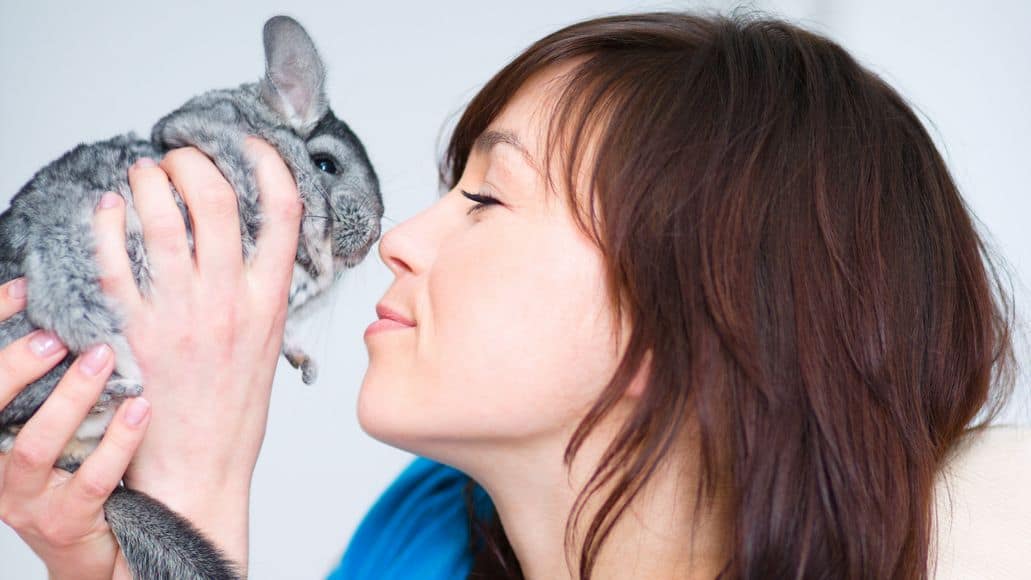
One of the biggest pieces of advice I can give you is to become organized about spending time with your chinchilla.
This makes life much easier.
My chinchilla is active at certain times of the day. This makes it easy for me to control the schedule and pick the best time for her to come out and play and interact with me.
This also makes it much easier for you to leave your chinchilla alone and not paired with another chinchilla, since they still will be getting the socialization and activity that they need.
I personally get my chinchilla out of her cage every day at the same time (most of the time). This is typically at about 6 am when she’s active and jumping around her cage like mad women.
I allow her to come out in my basement, which I have fully chin proofed, and allow her to do her thing.
And that is the one other thing you need to take care of, apart from making time for play time. You need to ensure the room in which you allow your chinchilla to spend time outside its cage is safe.
To do this, you can review my post about chinchilla proofing a room here. Make sure that all wires are covered and your chinchilla can’t access anything dangerous or harmful.
If you need some more help with this, you can also view my post about how chinchillas will chew wires.
It breaks down how to battle back against the dangers any room in the home can present to your chinchilla, and how to effectively create a safe space for your pet to roam.
A Lonely Chinchilla May Display Strange Behavior
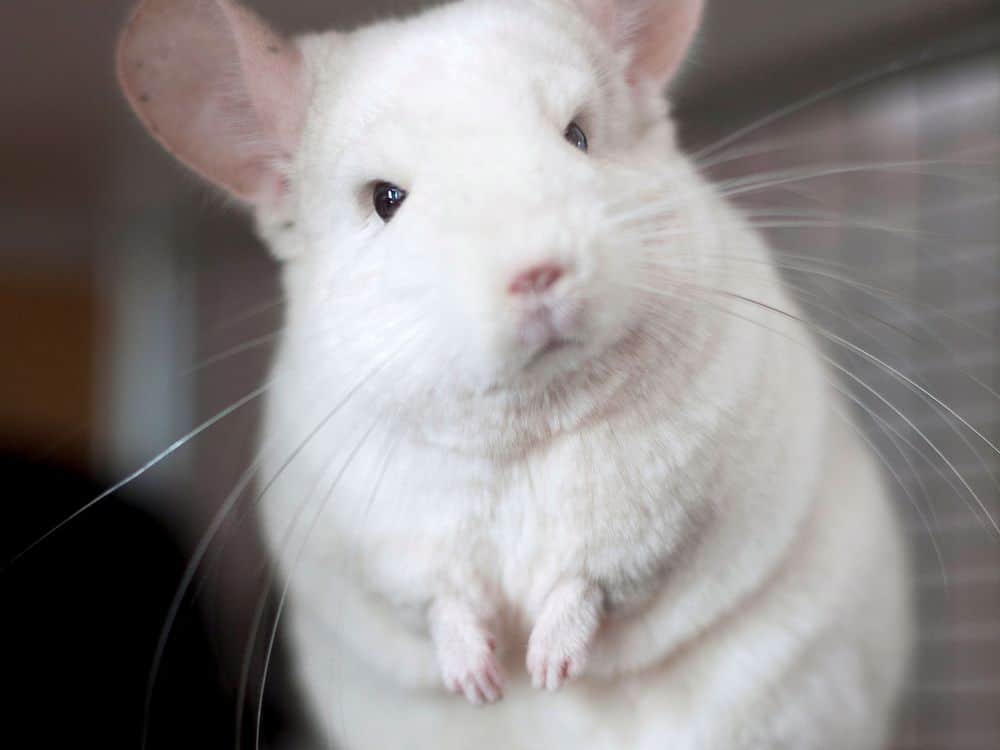
If you notice that your chinchilla is displaying more destructive behavior or acting differently, it could be a cry for help or attention.
While chinchillas are normally extremely friendly animals, it’s possible that a lack of social interaction has flipped the switch for your chinchilla.
If this is the case, you likely are not spending enough time with your pet. Or perhaps it’s time to consider adopting another chinchilla to keep the first one company.
Chinchillas don’t continue behaving or acting perfectly if they are in an environment where they are neglected or not allowed to socialize with either humans or other chinchillas.
To put this in the simplest terms possible, pay attention to your chinchilla and adjust if need be, but don’t adopt a chinchilla in the first place if you have no intention of building a bond with it.
A chinchilla living alone is only a good idea if you can accommodate its need for socialization. That is the best way to put it.
Not finding time for your chinchilla if they live alone is a bad idea in general. It’s not ethical and will result in a chinchilla not thriving or being happy in your care or home.
Always Supervise When Possible
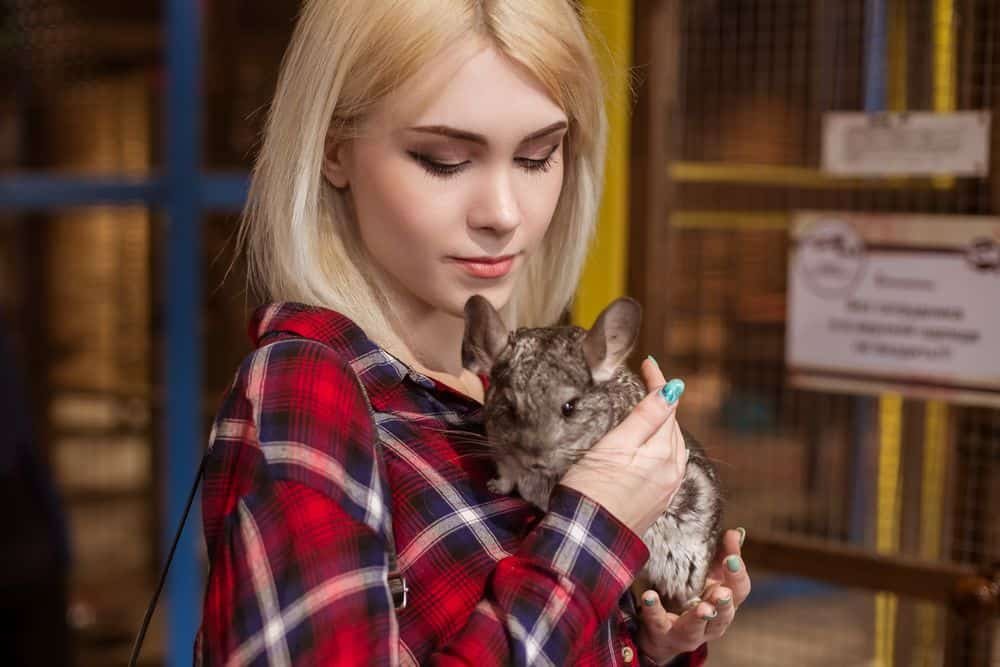
This headline may have scared you a bit so let me explain. Chinchillas do not need supervision all the time. And honestly, they rarely need supervision as long as you are doing your part.
The point is that a chinchilla shouldn’t be strictly banished to one room and left to relax in its cage. Check-in daily and implement the other keys we have laid out for you in this post.
The best way to get to know and understand your chinchilla is to simply pay attention and adjust when need be. Chinchillas can tell you what they are feeling through body language.
They can even let you know if something is wrong or they are mad about being alone by using noises.
Chinchillas will communicate their feelings to you through cuddling, excitement and even making chinchilla like noises. All of these can be good indicators whether you are providing enough love and attention towards a chinchilla that is living alone.
Chinchillas Being Alone: Final Thoughts
Yes, chinchillas can be alone and live alone. Period.
At the end of the day, it’s imperative to understand that a chinchilla can absolutely be alone under the correct circumstances.
Be sure to show your chinchilla some love and affection and your chinchilla will thrive and grow old with you at your home.
It’s a great journey and chinchillas 100% make a great pet to own.
Chili and I wish you the best of luck with your new chinchillas and the journey you have ahead of you.
Turning the floor over to you, does your chinchilla live alone?
As always, I love it when you chime in and share your thoughts on the topics we discuss.
Does your chinchilla live alone and what other recommendations can you provide the readers about a chinchilla being alone, as opposed to having a cage mate?
Be sure to share those thoughts, stories, and concerns by dropping a comment below.
As always, Chili and I appreciate you stopping by and reading today and we will see you again next time.
Leave a Reply